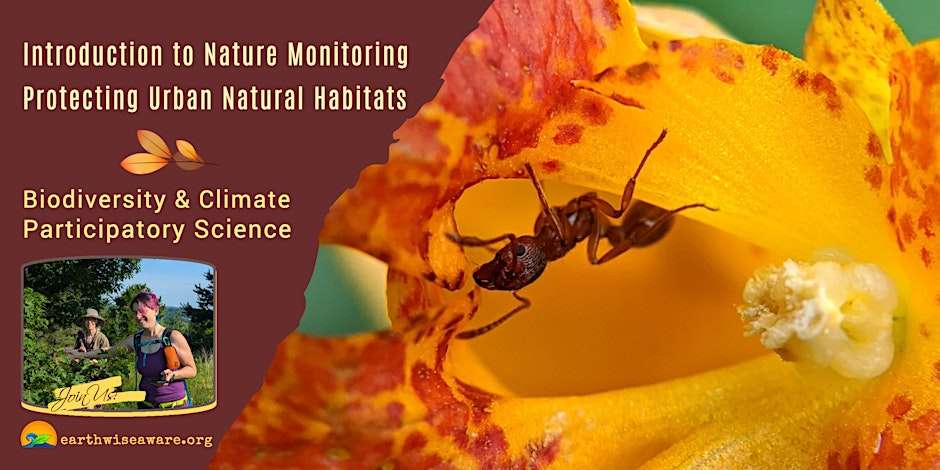Flip the Script
Understanding Food Sovereignty

Food Sovereignty is the right of people everywhere to produce food locally and sustainably through agroecological methods that respect the climatic, cultural and geographical context of each region. It places us at the heart of food systems, instead of powerful corporations, by building on the principles of solidarity, collectivity and social justice. Food Sovereignty defends our past, present and future generations, and is an alternative to a destructive and harmful industrial food system. It prioritises local trade and markets, which empower peasant agriculture, food production, distribution and consumption based on environmental, social and economic sustainability. It ensures our right to use and manage our own lands, territories, waters, seeds, livestock and biodiversity. Most importantly, Food Sovereignty gives us the power to preserve and grow our food producing knowledge and capacities worldwide.
Featured
Mobilized Flips the Script

A well-informed public is the most valuable natural resource of all.
We’re living in the age of broken systems—where billion-dollar studios and news networks chase clicks, sequels, and shareholders, and forget the people they are supposed to be serving.
Hollywood is stuck on repeat.
The news distracts more than it informs.
The stories that shape our world have been hijacked by spectacle and spin.
Trust in media is plunging.
Streaming subscriptions are dropping.
Creative burnout is rising.
The result?
We’re overwhelmed, misinformed, disconnected—burned out by content and starved for meaning.
But what if media wasn’t the problem?
What if it’s the solution?
Mobilized News is the studio and news network of the future, built on a simple, powerful truth:
A well-informed public is the most valuable natural resource of all.
We’re not chasing the next Marvel movie.
We’re building a media ecosystem powered by purpose and driven by people.
We’re opening our doors to communities around the world that want to take back control of their voices:
- Disenfranchised people left out of the conversation.
- Ethical leaders who aren’t invited to the corporate tables.
- People with stories to tell and who want to be a vital part of creating a brighter future.
Here’s how it works:
- Decentralized storytelling means stories are created by the people, enabling deeper connection to their realities.
- Communities pitch and co-produce their own narratives, then share them with the network—providing the real stories of what’s happening, what’s working, why, and how.
- Journalism as action connects every story to real-world impact—petitions, campaigns, teachings. It’s news that mobilizes, not paralyzes.
- A new creative economy empowers the creators themselves—artists, journalists, filmmakers, technologists—collaborating across disciplines, putting impact ahead of ad dollars and views.
- And radical transparency means open data and ethical AI. No gatekeepers, no hidden agendas.
Mobilized News connects the local to the global:
From food sovereignty in Uganda
to justice campaigns in the United States
to climate action in Brazil.
This isn’t traditional media.
This is participatory media.
Less Disney. More democracy.
Fewer celebrities. More citizen storytellers.
Less distraction. More direction.
Mobilized News restores trust in journalism,
rebuilds civic power,
and reimagines what storytelling can do.
This isn’t a competitor to old media—
It’s a replacement for what the public actually needs:
Truth.
Connection.
Power.
It’s time to flip the script.
It’s time to get mobilized.
A new story begins: Mobilized News
Featured
The Evolution of Food Systems
Vow launches “Forged Gras” —— lab-grown foie gras
- Australian startup Vow officially released its cultured quail-based foie gras in Singapore and Australia, branded Forged Gras. The product is now served in over 35 upscale venues following regulatory approvals from FSANZ and in Singapore. Priced at around $19 per serving, it undercuts conventional foie gras while avoiding animal cruelty.
Impact: This marks one of the earliest mainstream market launches of cultivated gourmet meat—not a commodity product but a luxury food niche. It demonstrates regulatory acceptance and opens the door to high-end culinary use cases. Though production costs remain high (~$85/kg), the premium positioning may attract investors and early-adopter consumers.
GEA opens $20M U.S. pilot hub for alternative proteins
- On July 17–21, GEA inaugurated its Food Application & Technology Center in Janesville, Wisconsin. The 100% renewable-energy facility offers modular pilot-scale bioreactors for precision fermentation, cell cultivation, and plant-based ingredient testing.
Impact: This infrastructure is crucial for scaling: startups and CPGs can simulate industrial conditions before full-scale production. It lowers the barrier to entry across the supply chain and accelerates innovation in egg-white, seafood, and dairy protein production.
Growing research behind cost-effective processes
- Multiple studies underscore the promise of AI and machine learning to optimize cell culture and fermentation, as well as systems converting lignocellulosic waste into microbial protein feedstocks. These methods support cost reductions and circular production models
Impact: By integrating AI-driven bioprocess control and waste-to-protein systems, the industry can reduce reliance on expensive inputs and improve resource efficiency—critical for scaling commodity-priced alternative proteins.
ProVeg incubator includes fungi-based precision dairy startups
- In April, ProVeg’s incubator selected 10 startups—including those developing AI-enhanced protein production and precision-fermented dairy from fungi—for support and coaching.
Impact: This supports an emerging pipeline of functional proteins beyond meat, expanding ingredients into baked goods, cheeses, and novel dietary applications—strengthening ecosystem-building across global alt-protein innovation.
Sector Trends: Implications at a Glance
| Update | Sector Focus | Key Impacts |
|---|---|---|
| Vow’s Forged Gras launch | Cultivated poultry meat | Luxury focus enables early regulatory wins and culinary validation |
| GEA’s U.S. hub opening | Pilot infrastructure | Bridges R&D to industrial scale; democratizes access for startups |
| Future Cow funding | Fermented dairy proteins | Expands geographic protein innovation and non-meat ingredient diversity |
| AI & waste-to-protein research | Cost optimization & circularity | Accelerates affordability and sustainability in scaling |
| ProVeg startup cohort | Fungal precision fermentation | Builds ingredient-level innovation pipeline globally |
Featured
Personal Democracy
- These stories mark a clear shift: ecological economics is gaining traction beyond academia into practical policy, local governance, and public debate.
- They illustrate a growing understanding that ecological limits, wellbeing economies, and economic justice are interconnected.
- Policy relevance spans from UK planning reforms to farm incentives in Europe, and local governance models in places like Sweden.
Tomelilla, Sweden Adopts Doughnut Economics
- Tomelilla, a small Swedish town, implemented Kate Raworth’s doughnut economics framework in municipal planning—embedding ecological ceilings and social foundations into budgeting, urban design, transport, and procurement.
Impact:
-
- Shifted decision‑making toward regenerative and low‑carbon pathways (e.g., refurbishing instead of building anew, free public transit for youth).
- Showcased how even small municipalities can prioritize wellbeing within planetary limits.
- Inspired other cities and municipalities globally to explore similar sustainable economic models.
Op‑ed: Environmental Protection As Economic Gain (Australia)
- Economist Nicki Hutley argued that preserving nature and fighting climate change deliver clear net economic benefits—from cost savings in avoided climate disasters to job creation in clean energy.
Impact:
-
- Strengthened the narrative that ecological stewardship supports, rather than hinders, economic prosperity.
- Highlighted reduced solar panel prices and high costs of inaction (~US $143 billion/year) as economic logic for transition.
- Supports momentum for policy reforms such as carbon pricing and nature‑inclusive planning in Australia and worldwide.
UK’s Planning Bill Nature Levy Faces Blowback
- UK’s proposed “nature levy” would let developers pay to bypass environmental protections. Economists and ecologists—including Partha Dasgupta—warned this creates a “license to kill nature.”
Impact:
-
- Raised alarm about weakening environmental safeguards and undermining ecological integrity in planning.
- Pressured policymakers to revisit or withdraw the provision, emphasizing need for independent regulation and systemic reform.
- Reframed ecological economics as crucial for aligning development with planetary boundaries.
Academic & Policy Developments
ISEE Launches Special Issue on Ecological Macroeconomics
When: Call opened June 18, 2025 (submissions open July 1, 2025)
- The International Society for Ecological Economics (ISEE) invited papers exploring integrated ecological‑macroeconomic models to understand post-growth futures, climate policy, and inequality.
Impact:
-
- Encourages development of models that capture economic–ecological–social feedbacks.
- Supports transition from conventional GDP-focused narratives toward wellbeing‑oriented policymaking.
IIASA Study: Economic Gains from Mining Quickly Fade
Researchers found that while industrial mining brings short-term economic boosts, benefits fade once global prices dip—even affecting neighboring regions.
Impact:
-
- Highlights ecological-economic vulnerability linked to commodity dependence.
- Supports policy emphasis on diversified, nature-aligned development pathways instead of extractivism.
Modelling Biodiversity & Pesticide Use Relative to Farm Size
The paper introduces a spatial ecological-economic framework showing small‑to‑mid‑size farms benefit economically from reduced pesticide use combined with habitat restoration, whereas large farms struggle to do so.
Impact:
-
- Informs policy design: environmental incentives should be tailored to farm structure.
- Promotes biodiversity via cost-effective, scale‑specific strategies for pest control and sustainability.
Summary Table
| Story | Timeline | Impact Summary |
|---|---|---|
| Tomelilla’s doughnut economics adoption | July 17, 2025 | Local innovation in wellbeing economy, global inspiration |
| Hutley op‑ed: environment as economic net benefit | July 17, 2025 | Reframes ecological values as economic strengths; bolsters climate policy |
| UK Planning Bill “nature levy” controversy | April 2025 | Catalyzed advocacy for stronger nature protections in development policy |
| ISEE call for ecological macroeconomics modeling | June–July 2025 | Advances integrated modelling for post‑growth and fair‑transition policy |
| IIASA mining-economic study | July 28, 2025 | Underscores risk of resource dependence; advocates sustainable diversification |
| Farm‑scale biodiversity model | May 2025 | Builds scale‑aware agri‑environment policy nexus for biodiversity gains |










